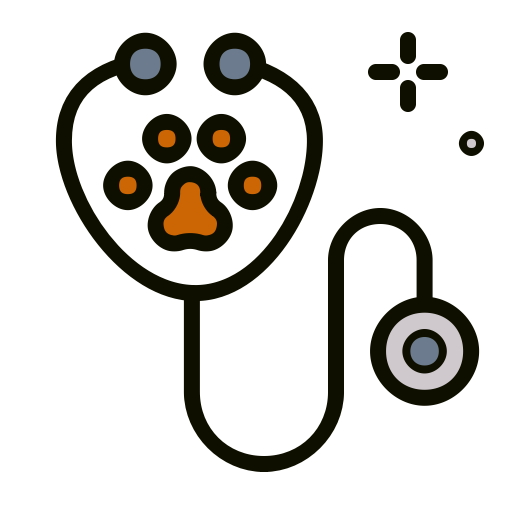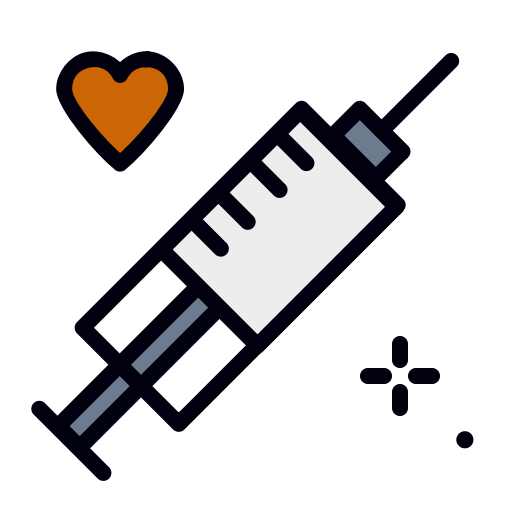Our Services
We are here to provide exceptional veterinary care for your pet during every life stage.
Southside Veterinary Clinic Services
Our veterinary team can provide the best medical care for your pet, whether it is ill, hurt or just visiting for an annual wellness checkup. From wellness exams to surgery, we are here for your dog or cat. If you have a pet need, contact us today.
Wellness

Examinations
At Southside Veterinary Clinic, we believe annual wellness care is imperative to keeping your pet happy and healthy! Your pet’s health is important and preventive care is necessary. We recommend wellness exams, keeping your pets on a vaccination schedule, and working with us on all facets of wellness care.
Your veterinarian will fully examine your pet during your annual physical exam and discuss vaccinations and ongoing wellness. Just like you do wellness visits with your doctor, it’s important that your pet does the same. During these visits, our team will spend time examining your pet from nose to tail. In addition, we will work with you to create the perfect ongoing wellness plan, from vaccine schedules to nutritional or behavioral recommendations to annual bloodwork; we want to form a team with you to support your pet’s health.
Puppy and Kitten Care
Bringing home a new puppy or kitten is an exciting time for your family. Southside Veterinary Clinic’s veterinarians can help you start your new puppy or kitten off right.
FIRST VET VISIT
Our vets recommend that you set up your pet’s first visit with us soon after adoption. It’s important to get your new pet set up with a good parasite and vaccination program as well as a thorough examination to assure your puppy or kitten is healthy and prepared to stay that way.
VACCINATIONS
Starting puppy and kitten vaccinations and keeping them on a schedule is critical to protecting their fragile systems from the most common diseases.
PARASITE SCREENING
Puppies and kittens eat or sniff at many things that can carry the eggs for internal parasites. Therefore, checking yearly for intestinal worms and administering necessary treatments is an important means for assuring your puppy or kitten will absorb nutrients and grow from the food you provide.
SPAY/NEUTER
Our vets usually recommend spaying or neutering at six months of age to prevent unwanted pregnancies and reduce the risk of other health problems. There are, of course, exceptions to that rule, and our veterinarians will have an open discussion with you to decide on the best time to spay your neuter your particular dog or cat.
We will work with you to ensure your pet’s health through their formative years and into adulthood. Schedule your puppy or kitten’s first exam with us today!
Senior Care
Did you know that pets are considered senior at seven years old? The needs of dogs and cats change as they grow older. We understand these changes and will cater to your dog or cat’s health plan to meet their needs. With the increased risk of different health issues, our vets recommend that senior pets have physical exams every six months. Blood work should continue to be checked once a year, and regular teeth cleanings should continue. Your vet will watch for changes in behaviors you are seeing at home and will be mindful of possible disease processes.
Parasite Prevention
Parasites are more than just a nuisance; they can cause serious illness to your pet and affect your family and pet’s quality of life.
FLEAS AND TICKS
Fleas and ticks are the most common parasites you as a pet owner will see, but we know that these pesky creatures can cause a mountain of issues within your pet. Fleas are a top cause of dermatitis-related issues with dogs and cats. Some pets become so irritated that they cause self-inflicted lesions. A flea infestation can quickly make your pet become anemic. When ingested, fleas can infest your pet’s intestinal tract with internal parasites (tapeworms). Fleas can also transmit Bartonella, the bacteria that causes “cat-scratch fever” in humans.
Ticks transmit and spread many tick-borne diseases such as Lyme Disease, Anaplasmosis, and Ehrlichia. Lyme Disease can cause a variety of spin-off issues such as lameness, lethargy, kidney issues, and joint swelling.
HEARTWORMS
Heartworms are a worm that lives in your pet’s heart and lungs, causing damage to major internal organs. Heartworm disease is 100% preventable by giving your pet a monthly heartworm prevention chew. Heartworms are treatable, but the cost of treatment can be expensive, overwhelming, and painful for your pet. However, you can treat your pet with monthly prevention for almost 10 years for the cost of treating your pet for heartworm infestation one time.
INTERNAL PARASITES
There are various internal parasites that your pet can contract from other infected pets or consuming things in the yard or community or drinking water. Some pets will be outwardly symptom-free but can have multiple internal parasites affecting their system. These internal parasites can be diagnosed by a fecal screening and an appropriate deworming schedule. It is recommended to perform a fecal screen every 6 to 12 months, depending on your pet’s lifestyle.
Health Certificates
Our veterinarians will issue pet health certificates that enable your pet to travel with you safely. We can assist you with both domestic and international travel. When traveling with your pet(s), animal health requirements may be specific to that destination. As soon as you know your travel details, contact your local veterinarian to assist with the pet travel process. Factors to consider may include meeting time frames for obtaining a health certificate, updating vaccinations, diagnostic testing, or administration of medications/ treatments.
Please contact us today to learn more about the best practices when traveling with your pet.
Vaccinations

Canine Vaccinations
We recommend a vaccine schedule for puppies starting at 8 weeks old. You should bring in your new puppy as soon as possible to make sure they can receive their first set of vaccines. Our vaccine schedule is as follows:
- 8 weeks: DHPP #1 (Distemper, Hepatitis, Parvovirus, Parainfluenza)
- 12 weeks: DHPP #2 and Leptospirosis #1
- 16 weeks: DHPP annual, Leptospirosis annual, and Rabies annual
Adults should be vaccinated again in a year with a DHPP, Leptospirosis, and Rabies.
Dogs in contact with other strange dogs such as those in playgroups, obedience training, boarding at a kennel, or visiting a grooming salon are more likely to catch Tracheobronchitis or ‘Kennel Cough’, an easily transmitted respiratory infection and the Canine Influenza. Vaccines are available for both and are required for boarding in our facility.
To learn more about these specific diseases and how they may affect your dog, please view our “Canine Diseases” tab. At Southside Veterinary Clinic, we know that no two dogs are the same. Therefore, we will work with you to create the perfect vaccine schedule for your dog’s lifestyle. Vaccinations that last for 3 years are also available for adult dogs that meet certain criteria—please inquire if interested.
Canine Diseases
DISTEMPTER
A highly contagious and potentially fatal viral disease, spread by discharge from the nose and eyes of infected dogs. The distemper virus attacks many organs, including the nervous system, which may be permanently damaged, even if the dog recovers.
HEPATITIS
Caused by Canine Adenovirus Type I, this disease is transmitted among dogs by contact with secretions such as saliva, infected urine, or feces. It caused liver failure, eye damage, and respiratory problems. The severity of this disease can range from mild to fatal.
PARVOVIRUS
A very contagious and potentially fatal disease which attacks the gastrointestinal tract and, in some instances, the heart muscles. The disease is most severe in young puppies and elderly dogs. Spread through infected feces, the highly resistant virus can remain in the environment for many months.
PARAINFLUENZA
Canine parainfluenza virus (CPIV) is a highly contagious respiratory virus and is one of the most common pathogens of infectious tracheobronchitis, also known as canine cough. Although the respiratory signs may resemble those of canine influenza, they are unrelated viruses and require different vaccines for protection.
LEPTOSPIROSIS
A bacterial disease that attacks the kidneys and liver. Wild animals can carry the Leptospira; therefore, dogs with a higher potential for exposure to contaminated water and wild animals and their urine are at a greater risk (e.g., living in rural areas, hunting dogs). Leptospirosis is a zoonotic disease, meaning it can be passed from animals to humans.
RABIES
This incurable viral disease affects the central nervous system of almost all mammals, including humans. It is spread through contact with the saliva of infected animals (such as skunks, foxes, raccoons, and bats) through bites or any break in the skin. Vaccination will provide your pet with much greater resistance to rabies if it is exposed to the disease. For this reason, many municipalities absolutely require that all dogs and sometimes cats receive rabies vaccinations regularly. Plus, you will definitely have to provide vaccination records if you want to travel with your dog across the United States or around the world.
TRACHEOBRONCHITIS (KENNEL COUGH)
A respiratory tract infection is easily transmitted from one dog to another in playgroups, obedience training, or boarding at a kennel. Most training facilities require vaccination certification. This disease is caused by various airborne bacteria and viruses, including Canine Parainfluenza virus, Canine Adenovirus Type II, and Bordetella bronchiseptica.
CANINE INFLUENZA
First reported in Florida in 2004, dog flu is spreading across the United States. It is easily transmitted by direct contact, cough or sneeze, or via contaminated surfaces. Protection is available with a new vaccine—ask if it is appropriate for your dog.
Feline Vaccinations
We recommend a vaccine schedule for kittens starting at 8 weeks old. You should bring in your new kitten as soon as possible to make sure they can receive their first set of vaccines. Our vaccine schedule is as follows:
- 8 weeks: FVRCP #1 (Feline Viral Rhinotracheitis, Feline Calicivirus, and Feline Panleukopenia)
- 12 weeks: FVRCP annual and Rabies annual
Adults should be vaccinated again in a year with an FVRCP and Rabies.
Cats that are able to be in contact with other strange cats are at greater risk of exposure to Feline Leukemia. For these cats, we would recommend testing for the Feline Leukemia disease and then vaccination of those that test negative for the disease.
To learn more about these specific diseases and how they may affect your cat, please view our “Feline Diseases” tab. Vaccinations that last for 3 years are also available for adult cats that meet certain criteria—please inquire if interested.
Feline Diseases
FELINE VIRAL RHINOTRACHEITIS AND CALICIVIRUS
Like the common human cold, these viruses cause upper respiratory tract infection. They are easily transmitted from one cat to another. Kittens are particularly affected, but these diseases can be dangerous in any unprotected cat, as effective treatment is limited. Even if a cat recovers, it can remain a carrier for life, possibly infecting other cats.
FELINE PANLEUKOPENIA (DISTEMPER)
Feline distemper is caused by a virus so resistant it can survive up to one year outside a cat’s body! Infection rates in unprotected cats can run as high as 90% to 100%. Treatment of the disease is very difficult, and even if recovered, a once-infected cat can spread the disease to other unprotected animals.
RABIES
This incurable viral disease affects the central nervous system of almost all mammals, including humans. It is spread through contact with the saliva of infected animals (such as skunks, foxes, raccoons, and bats) through bites or any break in the skin. Vaccination will provide your pet with much greater resistance to rabies if it is exposed to the disease. For this reason, many municipalities absolutely require that all dogs and sometimes cats receive rabies vaccinations regularly. Plus, you will have to provide vaccination records if you want to travel with your dog across the United States or around the world.
FELINE LEUKEMIA
The leading cause of death in cats in North America, Feline Leukemia Virus, can result in a multitude of serious health problems for your cat—everything from cancerous conditions such as leukemia to a wide range of secondary infections caused by the destruction of the immune system. After initial exposure to the virus, a cat may not show signs of its presence for months, if not years.
General

Euthanasia Services
Saying goodbye to our four-legged friends is the hardest thing we have to do as pet owners. As much as we love our pets, eventually, the time comes when we have to let them go. At Southside Veterinary Clinic, we understand how difficult this process can be, but just as we’re there for you at every other stage of your pet’s life, we will be there for you when they enter their final days. We offer comprehensive pet end-of-life care and cat and dog euthanasia services to best meet the needs of you and your pet.
While euthanasia is not an easy subject for any of us to discuss, a peaceful goodbye is always best for every pet. When the time comes to say goodbye, the team at Southside Veterinary Clinic can provide counseling and support to help you make the best decision for your pet’s final day.
If you have any questions or concerns about end-of-life pet care, please contact our veterinary professionals at 918-366-6458. We will do everything we can to help you through this difficult time. Please accept our condolences on behalf of the entire Southside Veterinary staff.
Pain Management
No one wants to see their pet hurting, which is why managing pain and discomfort is one of our main goals at Southside Veterinary Clinic. Our team will design a pain management plan tailored to your pet’s needs for all surgical procedures and the treatment of chronic conditions.
Animals instinctively hide the pain, so it’s good to know what to look for if your pet requires help. Common symptoms include:
- Excessive licking or biting
- Lethargy
- Limping
- Loss of appetite
- Panting
- Reluctance to move or jump
- Hiding
- Howling, whining, or other abnormal vocal cues
Changes in behavior, such as growling or overt aggression, may also be indicators of pain. If your pet displays any of these signs or has experienced a recent trauma, please contact us immediately for an examination.
Microchipping
When a pet goes missing, a microchip can dramatically increase the odds that they find their way home. The staff at Southside Veterinary Clinic highly recommends this simple and quick procedure.
A tiny microchip is placed under the skin between the shoulder blades of the dog or cat. The microchip has an identification number on it, which can be read by a scanner. A veterinarian’s office or animal shelter can scan the chip to find out who owns the animal.
When your pet is microchipped, your vet will ask you for your current contact details, and these will be added to a national register. Your name, address, and telephone number will be permanently connected with the unique 15-digit number on your pet’s microchip, so if your pet goes missing, it can be traced back to you immediately.
Pharmacy
You and your pet will benefit from our well-stocked pharmacy. We maintain an extensive inventory of veterinary pharmaceutical products and medications, including flea, tick, and heartworm preventive products. You can rely on us whether your pet requires medication for a chronic medical condition or needs short-term medication while recovering from an illness, injury, or surgery. When you purchase medications from our pharmacy, you can rest assured that your pet’s medications were obtained from safe, reliable sources and stored under optimal conditions. Our trained staff will fill your prescriptions with care as well as attention to detail and your pet’s specific needs. You can count on us to provide you with accurate information about your pet’s medications, including proper dosing information, and to alert you to any potential drug side effects or interactions. We are also here if you experience any problems with your medication after you return home. Help is only a phone call away!
If you want to be sure to get the most value for your dollars, as well as convenience and the best customer service, call us for your next prescription or medication refill, or visit our online pharmacy. We are pleased to provide our clients with a fully stocked pharmacy, and we stand behind every product that we dispense.
Surgery

Spays
Spaying your pet has many benefits. The procedure, which prevents female animals from becoming pregnant and reproducing, can help your dog or cat live a longer, healthier life. Spaying will not change your pet’s personality.
By spaying your female pet, you’re protecting her against potentially deadly diseases, including bacterial infections, reproductive tract diseases, and several types of cancer. You also won’t have to worry about her going into heat. This means avoiding the mess that often accompanies the heat cycle in female dogs and the pacing and crying that happens with female cats. In addition, spaying your pet will help control the dog and cat overpopulation problem, keeping more animals out of shelters.
Spaying, which involves removing the ovaries and uterus, is a surgical procedure and does need to be performed with the pet under anesthesia. We follow strict protocols and continually monitor your pet’s vital signs to help ensure her safety.
Please schedule an appointment to have your pet spayed. If you are struggling with the decision of whether to spay your pet, please call us so we can discuss your concerns.
Soft Tissue
We provide surgical options in a clean and safe environment. Most importantly, our veterinary team can closely track each animal’s vital condition during surgery.
Soft tissue surgery is a large subject, as it comprises any surgery that is not orthopedic. Procedures can range from simple cyst removals to complex and involved operations. Areas covered include ear, nose, and throat, cardiothoracic, hepatic, gastrointestinal, urogenital, skin reconstructive, and oncological surgeries.
Neuters
Neutering your pet has many benefits. The procedure, which prevents male animals from reproducing, can help your dog or cat live a longer, healthier life. Neutering will not change your pet’s personality.
By neutering your pet, you’re reducing or eliminating his risk for prostate and testicular cancer, as well as sexually transmitted diseases. Neutering will also reduce or eliminate undesirable and embarrassing behavior, including roaming, fighting, humping, and spraying. In addition, neutering your pet will help control the dog and cat overpopulation problem, keeping more animals out of shelters.
Neutering, which involves removing the testicles, is a surgical procedure and does need to be performed with the pet under anesthesia. We follow strict protocols and continually monitor your pet’s vital signs to help ensure his safety. Please call us today to schedule your pet’s neuter or discuss the procedure if you have any questions or concerns.
Dentistry

Dental Care
Why is dental care so important? Recent studies have shown that 70% of adult cats and 80% of adult dogs show symptoms of oral disease. In fact, most pet parents are not away that their pet is dealing with dental issues. Bad breath, plaque build-up, excessive drooling, sore or bleeding gums when eating or chewing, and decreased appetite are signs that your pet’s teeth may require veterinary attention.
Just as it’s important for you to see a dentist regularly, it’s important for dogs and cats as well. Your pet’s oral health is directly connected to their overall health. Signs of dental disease include bad breath, loose, broken or missing teeth, yellow or brown teeth, red, inflamed or bleeding gums, difficulty or pain when chewing, pawing at the mouth, and excessive drooling. If you notice any of these symptoms, please contact our team and we’ll be happy to help.
Dental Cleanings
If your pet needs dental cleaning, Southside Veterinary Hospital is here to help. We offer thorough dental cleanings to care for your pet’s teeth. Your pet will be placed under anesthesia, where our team will be able to examine your pet’s oral cavity fully. We will then remove any plaque or tartar from the teeth, check for signs of infection and gum disease, and polish their teeth to prevent plaque buildup. Call us today to discuss scheduling a dental cleaning for your pet!
Diagnostics

Laboratory
Blood tests and other laboratory tests are essential in keeping your pet well and diagnosing illness. The faster we are able to diagnose your pet’s health issue, the faster we can treat it! In addition, we work with an outside lab to offer any specialized tests your pet may need.
Radiology
When a pet is being radiographed, an x-ray beam passes through its body and hits a piece of radiographic film. Images on the film appear as various shades of gray and reflect the anatomy of the animal. Bones, which absorb more x-rays, appear as light gray structures. Soft tissues, such as the lungs, absorb fewer x-rays and appear as dark gray structures. Interpretation of radiographs requires considerable skill on the part of the veterinarian.
With the advances in digital X-ray technology, we can now manipulate the digital images that we take off a pet’s systems to see what is wrong. This has allowed us to detect things like hairline fractures and orthopedic conditions that were previously not visible. We share these digital images with specialists who consult with us on difficult cases.
Radiology (x-rays) is routinely used to provide valuable information about a pet’s bones, gastrointestinal tract (stomach, intestines, colon), respiratory tract (lungs), heart, and genitourinary system (bladder, prostate). It can be used alone or in conjunction with other diagnostic tools to provide a list of possible causes for a pet’s condition, identify the exact cause of a problem or rule out possible problems.

